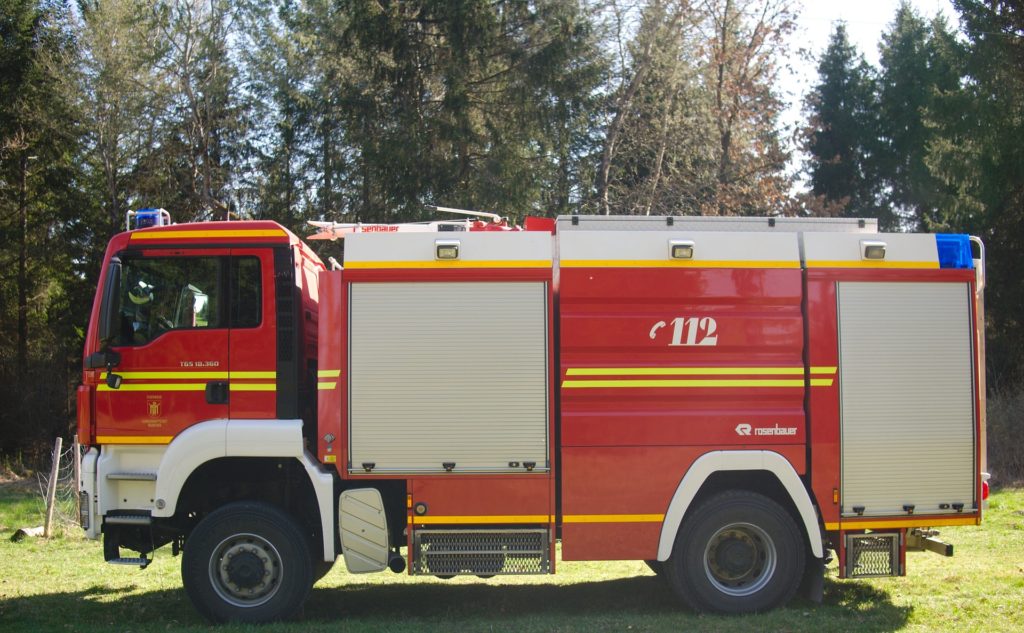In a time when widespread social unrest is coming to the surface — combined with a devastating pandemic — people across the United States are demanding better from those sworn to protect them. How can fire departments be a part of rebuilding community trust in their public servants?
Are people really angry with firefighters?
Emergency first responders are usually seen as community heroes, valiantly putting their lives on the line to protect others. In recent anti-racism uprisings, deep and intense anger has boiled over to the point of violence in some cities — including a few instances of protesters attacking firefighters and their equipment. Though the protests are in response to police brutality, it seems as though some demonstrators are deeming EMS personnel “guilty by association.” Most of the anger, though, is directed at a larger system of inequality and injustice.
How can fire departments rebuild trust?
Regardless of guilt or blame, all public servants owe it to their communities to uphold their sworn duties and make everyone feel safe. As long-standing pillars of their communities, fire departments should use this moment to show that they’re dedicated to their people — and here are three ways they can do it:
1. Increase efficiency and preparedness.
In communities where trust needs to be rebuilt, many feel as though their government’s inefficiency and lack of preparedness through this pandemic led to unnecessary suffering and death. With many quarantined or out sick, EMS responders are stretched thin from workforce shortages — but there’s no shortage of emergency situations.
By utilizing fire department software, fire stations can easily keep track of emergency budgets and increase the efficiency of their fire rescue systems to better meet the needs of their communities. Most importantly, fire department management software can help keep scheduling and personnel management running smoothly. Built-in staffing analytics allow the firehouse manager to plan proactively for staffing gaps, and incorporating automated scheduling fatigue rules can help avoid burnout. As part of the robust system, managers can access the fire department software on a mobile platform — controlling equipment tracking, fleet management, dispatch management, and more via smart phone or tablet command.
2. Be an active part of the solution.
Chief Marc Bashoor believes that fire departments are better off when they’re engaged in local politics and actively trying to be part of the solution to public safety issues. Showing up for people off the clock and working to create a better future is perhaps the most important thing they can do. People need to feel like their frustrations, fears, and needs are being heard and understood. One issue fire departments across the US should be talking about is the incarcerated firefighters of California’s Conservation Camp Program (CCP).
Amika Mota, a former CCP participant, says, “Leadership needs to sit down and really restructure this program — and we need to figure out how do we expand the firefighters in California while not perpetuating a system of slave labor.” Amika’s monthly paycheck for fighting fires was $56. Aside from the abysmal pay, one of the biggest issues is that most participants can’t get hired as a professional firefighter after their release. Even though it’s a California program, solidarity and political pressure are powerful tools that departments across the country could use to effect change.
3. Maintain standards of respect, integrity, and community outreach.
Most people generally have great respect for EMS personnel and trust them to keep their communities safe. Chief Bashoor says, “Maintaining that trust will not require much out-of-the-box thinking, as long as you’re already a community-based fire protection department.” He recommends the following:
- Deliver uniform levels of service to everyone and maintain respect and integrity — even if it’s not reciprocated.
- Do what’s right, not what’s convenient.
- Back away from the keyboard and don’t let your frustration get the best of you.
- Get out of the station and get involved with community outreach
It can be really difficult to feel like people are misjudging you, but actions speak louder than words. As long as EMS responders continue to invest in their communities and do their jobs with integrity, they’re saying all that needs to be said to about who they are.
It’s a difficult time in the United States for countless reasons, and first responders aren’t responsible for all of the mess. People are angry with a larger system that EMS is a part of, and even most of those people still have great respect for firefighters. Still, during these tumultuous times, public servants of all kinds should do everything they can to make people feel safe, valued, and heard.

